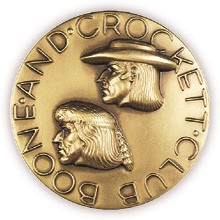Guest opinion: Conservationists must again battle bad, old ideas about public lands
By JIM POSEWITZ The Billings Gazette | Posted:
Saturday, January 15, 2011 12:00 am
It was once said that bad ideas die with the people who hold them. If only that were true. In viewing the opening of the Montana Legislature, it is apparent that the anti-conservation, anti-environment, anti-public land and anti-wildlife philosophy of Montana's most notorious politician is vigorously alive in 2011.
By way of refresher, William A. Clark was our U.S. senator from 1901-1907. At the time, it was a position filled through vote of the state Legislature. For Clark, it was “... a position he had initially purchased with bundles of crisp $100 bills handed out to legislators in monogrammed envelopes — W.A.C. stamped on the fold, $10,000 per vote,” according to Tim Egan in “The Big Burn,” published in 2009. Clark's defense at the time was, “I never bought a man who was not for sale.”
The prize then, as it is now, was privatization and commercialization of natural resources. Clark and conservatives like Idaho's Sen. Weldon Heyburn and “Uncle Joe” Cannon of Illinois championed privatizing all of America. Their opponents believed that in America some natural resources were best shared. Their names are less eroded by time: Gifford Pinchot, George Bird Grinnell, and Theodore Roosevelt.
Montana's public land legacy
In order to protect forests and wildlife, Roosevelt, Pinchot, and Grinnell created the Boone and Crockett Club to introduce the sporting code and conservation to a nation.
In 1891 they lobbied a bill through Congress to allow presidents to reserve unclaimed land as forest reserves. When Roosevelt got to be president he used that authority — with vigor. In response, Clark, Weldon, Cannon and other anti-conservation conservatives attached a “rider” to an appropriations bill to prohibit the president from creating any new forest reserves in six western states — including Montana. In the seven days he had to either sign or veto the bill, Roosevelt added 16 million acres of national forest reserves in the states that Clark and his allies sought to reserve for the corporate robber barons. For Montana, those seven days meant the Big Hole, the Big Belts, the Little Rockies, the Cabinets, the Lewis and Clark and the Custer national forests. A couple of years later Grinnell led the fight to add Glacier Park to the list of protected places.
The battle between exploitation and conservation has persisted through the century that followed, generally with pseudo-conservatives attacking conservation budgets, vilifying those carrying the conservation message, and purging progressive political thought from their own political ranks. We are only one year away from the 100th anniversary of Republican Party bosses denying Theodore Roosevelt the nomination as their party's presidential candidate in 1912. As the years passed we have responded to Reagan's “Sage Brush Rebellion,” Interior Secretary James Watt's effort to “bomb” the Bob Marshall Wilderness with oil exploration, and numerous other attempts to sell off our public lands or diminish their protection.
Welcome to the 2011 Montana legislative session and its promise to: privatize and commercialize our
/read more:


 On December 3, President Obama formally nominated Dan Ashe to be the next Director of the U.S. Fish and Wildlife Service. Currently serving as Deputy Director, Ashe has been the science advisor to the Director, Chief of the National Wildlife Refuge System and Assistant Director for External Affairs.
On December 3, President Obama formally nominated Dan Ashe to be the next Director of the U.S. Fish and Wildlife Service. Currently serving as Deputy Director, Ashe has been the science advisor to the Director, Chief of the National Wildlife Refuge System and Assistant Director for External Affairs.